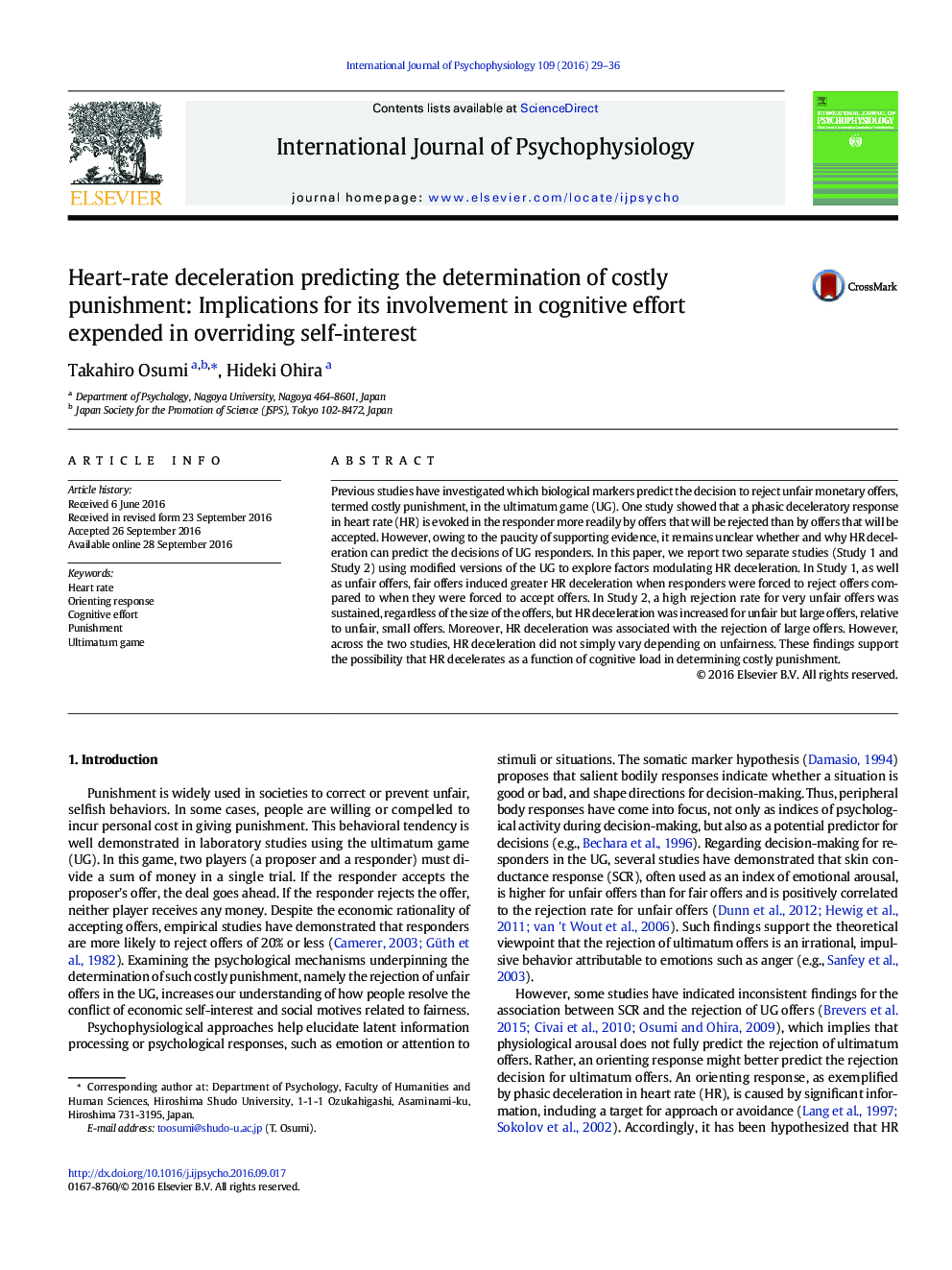| کد مقاله | کد نشریه | سال انتشار | مقاله انگلیسی | نسخه تمام متن |
|---|---|---|---|---|
| 5042413 | 1474387 | 2016 | 8 صفحه PDF | دانلود رایگان |
- Heart rate (HR) deceleration is investigated for responders in the ultimatum game.
- The unfairness level of a monetary offer is less likely to modulate HR deceleration.
- HR deceleration is induced by ultimatum offers that responders must reject.
- Unfair but large offers heighten HR deceleration relative to small, unfair offers.
- The findings imply the involvement of cognitive control in HR deceleration.
Previous studies have investigated which biological markers predict the decision to reject unfair monetary offers, termed costly punishment, in the ultimatum game (UG). One study showed that a phasic deceleratory response in heart rate (HR) is evoked in the responder more readily by offers that will be rejected than by offers that will be accepted. However, owing to the paucity of supporting evidence, it remains unclear whether and why HR deceleration can predict the decisions of UG responders. In this paper, we report two separate studies (Study 1 and Study 2) using modified versions of the UG to explore factors modulating HR deceleration. In Study 1, as well as unfair offers, fair offers induced greater HR deceleration when responders were forced to reject offers compared to when they were forced to accept offers. In Study 2, a high rejection rate for very unfair offers was sustained, regardless of the size of the offers, but HR deceleration was increased for unfair but large offers, relative to unfair, small offers. Moreover, HR deceleration was associated with the rejection of large offers. However, across the two studies, HR deceleration did not simply vary depending on unfairness. These findings support the possibility that HR decelerates as a function of cognitive load in determining costly punishment.
Journal: International Journal of Psychophysiology - Volume 109, November 2016, Pages 29-36
